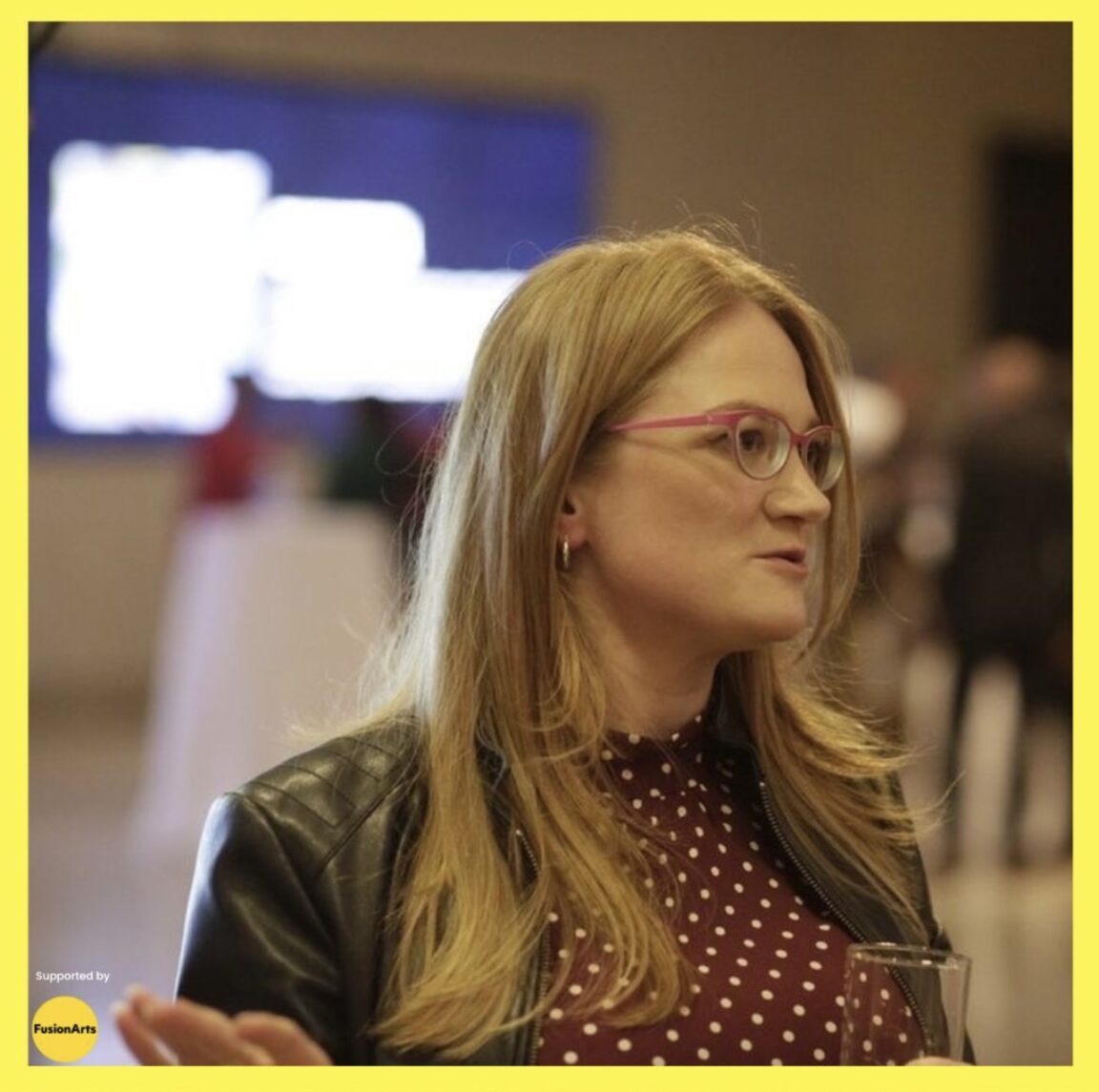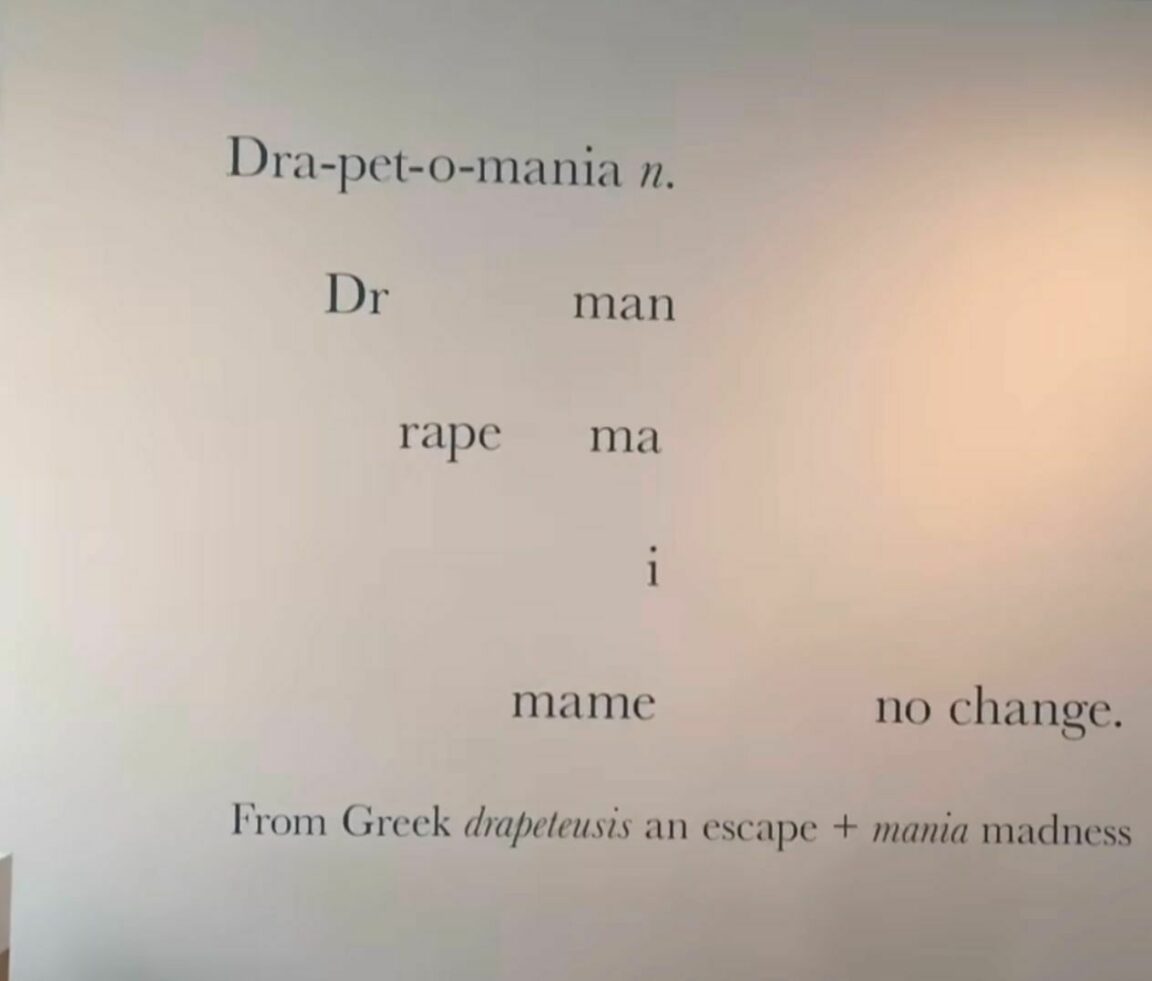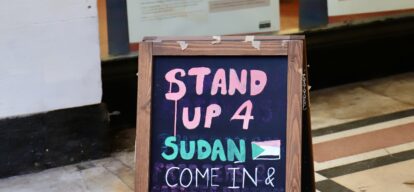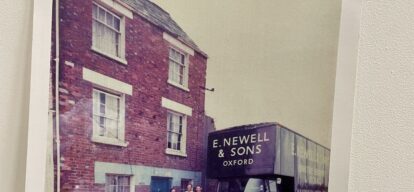
01/12/2022
Johannah Latchem is one of the artists that delivered artwork for These Things Matter Exhibition.
Dr Johannah Latchem is a UK artist who completed her post-doctorate at Oxford University, and her PhD in Fine Art/Art History at Newcastle University. Her work responds to contentious historic artefacts in national institutional collections.
These Things Matter is a small partnership exhibition between Museum of Colour, Bodleian Libraries and Fusion Arts, featuring six objects relating to slavery and empire, and six contemporary responses created by artists.
Johannah's artwork for These Things Matter 'This word perpetuated the systems of slavery’, ‘Drapetomania’.
‘Drapetomania’, named by the American physician Samuel Cartwrite in the New Orleans Medical and Surgical Journal, 1851, was a form of mania supposedly affecting enslaved people in the 19th century: an uncontrollable impulse to run away from their white enslavers, preventable by whipping, This work addresses how the word perpetuated the system of enslavement by legitimising it through a medical term, conditioning thinking across the wider population, and pathologising the human subject. It resonates with 20th-century instances of individuals wrongly consigned to asylums, sometimes for no legitimate reason, and raises questions of what maintains these systems.
We caught up with Johannah to find out more about her artistic practice, commissioned artwork on display, and lastly what is one word you would use to describe the TTM exhibition.
I'm Johannah Latchem, I'm an installation artist - most of my work involves responding to contentious, historic objects in national collections more often than not. This is to do with the subject of the law.
The title of my work is called Drapetomania. Drapetomania was a 19th Century term, it was a diagnosis termed by a physician called Cartwright in 1851, in the New Orleans Medical & Surgical Journal. It is a derogatory term, it describes a form of Mania that is supposedly to have been an illness that affected people who had been enslaved and it was a form of trying to escape from their white masters, which was allegedly preventable by whipping. My work really responds to this word, it looks at how thus words perpetuated the system of slavery, how they pathologize the human subject, how through this medical term this this became almost accepted, parlance, preconditioned, and the thinking of the wider population at the time.
I prefer the word HUMANISING.
Read the latest Fusion Arts blog and news updates.
November 2025: Oxford students raising funds & awareness for Sudan
November 2025: Winner and Finalists of the 2025 Open Call competition and images made during Photo Oxford community workshops.
Oct - Nov 2025: Highlighting working class histories across St Ebbes, St Thomas, and Osney.



